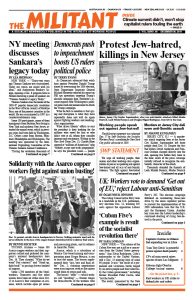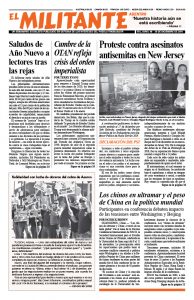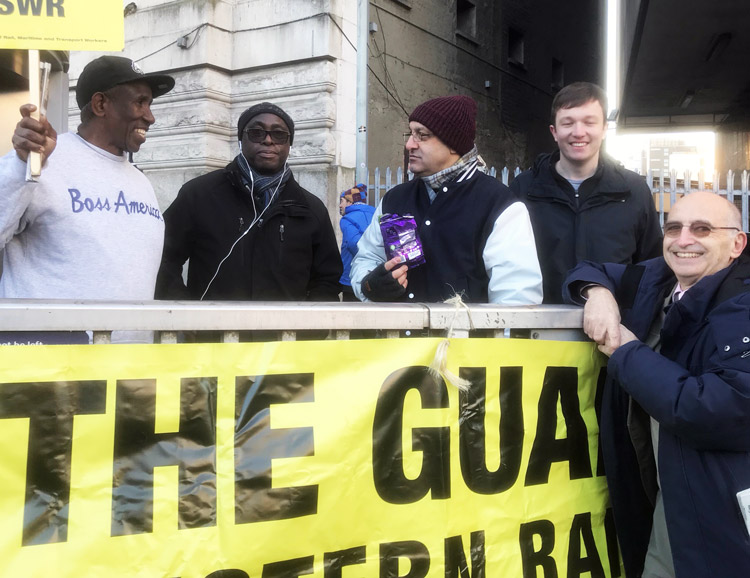The ruling Conservative Party won in a landslide in the U.K. parliamentary elections Dec. 12, winning 365 seats against the opposition Labour Party’s 203. The election campaign followed an unrelenting three-year drive by the main capitalist parties to prevent the implementation of the 2016 referendum vote that the U.K. quit the European Union. Another key issue was the Labour leadership’s continued abetting of rising Jew-hatred in the party.
Conservative leader Boris Johnson campaigned on the promise to “Get Brexit done,” improve access to health care and other public services, and bring investment to industrial areas hit by decades of job losses. Many largely working-class areas that for decades returned Labour members to Parliament elected Conservatives this time. The Labour Party had called for a second referendum on the EU membership of the U.K., seeking to overturn the 2016 result.
The vote to quit the EU was a protest by millions of workers and others against years of declining living standards and the indifference to what they face from the main pro-EU, capitalist parties — the Conservatives and Labour. The U.K. bosses’ bloc with the EU makes it more difficult for workers to take on their main enemy — the British ruling class.
Millions are frustrated by the refusal of the capitalist parties to implement the referendum result, epitomized by Labour’s call for a second vote.
Outrage mounted during the campaign when Labour’s Jeremy Corbyn refused to apologize for the anti-Semitism that has become more prevalent in Labour since he became party leader. Corbyn issued a belated apology just prior to the election.
Former Labour Mayor of London Kenneth Livingstone made his own anti-Semitic slurs days after the election, blaming what he called “the Jewish vote” for the result. Former French presidential candidate Jean-Luc Melenchon, who shares many of Corbyn’s views, claimed Israel’s Likud Party was responsible for Labour losing and said Corbyn wasn’t forceful enough in taking on criticism from Jewish groups.
In reality, casual anti-Semitism has declined among working people. Millions of workers in the U.K. are repulsed by Corbyn’s long record of association with Jew-haters. This includes his backing for Hamas which calls for killing Jews and the destruction of Israel.
The Communist League candidates — Caroline Bellamy in Wythenshawe and Sale East, Manchester, and Jonathan Silberman in Tottenham, London — stood against both main capitalist parties, campaigning under the banner of “Workers need our own party!”
The CL candidates used every opportunity to explain why Jew-hatred is a deadly threat to the working class, and condemned the beating of a rabbi in Stamford Hill, London, during the campaign.
The CL “approaches Brexit, like all questions, from what strengthens the working class in fighting the bosses here,” Bellamy told those attending a Dec. 6 candidates’ debate in Sale. Pointing to the way the EU has been used by rulers in Germany and France to squeeze working people in Greece, she said that the EU “doesn’t protect workers anywhere.” The party’s platform demands the U.K. get out of the EU immediately.
Communist League campaign supporters joined protesters demanding government action to prevent a repeat of the 2017 Grenfell Tower fire, in which 72 people died. They visited picket lines of guards (conductors) at South Western Railway, members of the Rail, Maritime and Transport union, who are on strike against the bosses’ attacks on jobs and safety. The party’s candidates urged solidarity with this fight and explained why working people should fight for workers’ control of production in the factories, railways and other workplaces to protect workers and those living in nearby communities.
At the center of the party’s campaign was explaining the need to build a movement of millions of working people that through revolutionary struggle can lead to the establishment of a workers and farmers government.


